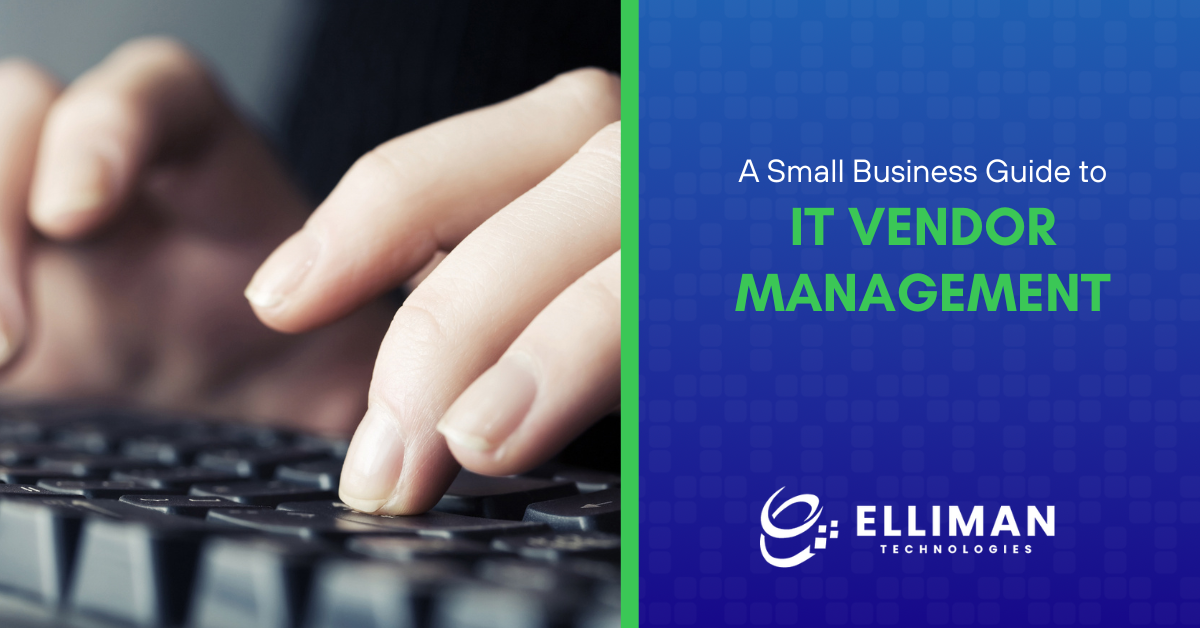Waiting for a critical vendor delivery, like your website launch or a long-overdue system update, can be stressful, especially when there wasn’t a clear plan in place from the beginning. Vendor problems can slow down your business, so it’s best to prevent them before they happen.
A study by Deloitte shows that half of the businesses surveyed reported that dealing with third-party issues now costs them twice as much as it did five years ago.
That’s why having dependable vendor partners, and managing them effectively, is crucial. For businesses that depend on IT services, strong vendor management helps reduce chaos and keep operations running smoothly.
What Is Vendor Management?
Vendor management isn’t just about signing contracts and paying invoices; it’s about how you choose the right partner, work with them, and hold them accountable. It’s a lot like managing any other relationship. Whether it’s your mechanic, accountant, or internet service provider, building relationships and clear communication are key.
In small businesses, vendor-related problems often stem from:
- Choosing the wrong vendor too quickly
- Poor communication on both sides
- Late payments or unclear billing
- No way to monitor performance or progress
Poor vendor relationships can lead to operational challenges like lost productivity, rising expenses, and increased stress. In contrast, good vendor management produces dependable services, cost-effective pricing, and assistance geared toward business development.
Why Vendor Management Is More Important Than You Think
As a small business owner, you’re likely working with limited resources and juggling multiple priorities. That means every part of your operation, including managing vendors, needs to run efficiently.
Without a vendor management plan in place, you risk:
- Overpaying for underwhelming services
- Dealing with delays that affect your customers
- Wasting time trying to fix other people’s mistakes
- Getting locked in rigid contracts that don’t grow with your business
Effective vendor management helps you sidestep these issues, keeping operations on track and giving you greater control over your business.
How to Manage Vendors Without Getting Overwhelmed
Can this be done without turning into a full-time project manager? Absolutely. It’s much less complicated than you might think.
1. Take Your Time Choosing the Right Vendors
Many vendor related issues begin when this step is rushed. Instead, take the time to do your homework by asking yourself these questions:
- How long have they been doing this, and how much experience do they have?
- Have they ever worked with businesses like yours?
- What do other clients say about them?
- Are their prices clear and fair?
Don’t let price be the only factor when choosing a vendor, expertise, reliability, and reputation matter too.
2. Pay Your Vendors on Time
If there’s one thing that earns you major points with vendors, it’s paying them on time. It shows respect and builds trust. Plus, if you need a favor or faster service down the line, they’re far more likely to help.
If you’re ever in a tight spot financially, just be upfront. Most vendors would rather work out a new timeline than chase you for payment.
3. Get Everything in Writing
Verbal agreements might work for minor details, but with vendors, it’s always best to get everything in writing, including:
- What they’re providing and by when
- Payment terms
- Any service guarantees or performance standards
- What happens if something goes wrong
Clearly defining expectations from the start prevents confusion later. It’s not about mistrust; it’s about making sure both sides are on the same page.
4. Don’t Just Track Tasks, Track Results
Some businesses pay vendors just for showing up or logging hours. Paying based on results is a smarter approach. For example, with an IT vendor, rather than simply paying for system monitoring under a fixed contract, tying their payment to reducing downtime or resolving issues within specific time frames leads to better outcomes.
Incentive models allow vendors to deliver real value while achieving your business goals.
5. Choose Vendors That Are Flexible
Imagine your business is growing, and you need to double your order. Or maybe your business requirements shift completely. Having good vendors makes it easier to adjust to those changes.
Always keep an eye out for flexible contracts and services that can grow with your business; that’s especially important in fast-moving industries like retail, hospitality, and tech.
6. Check In Regularly
Vendors are often overlooked once operations settle into a routine. Regular check-ins can catch small issues before they become major problems. Even brief monthly emails or quick 15-minute performance calls can make a big difference.
Use these check-ins to:
- Go over what’s working (and what’s not)
- Talk through any upcoming needs
- Review contract terms if necessary
This kind of attention shows you care about the relationship, and many vendors appreciate it.
A Few Simple Tools Can Help
You don’t need complicated systems to manage your vendors, just start with these simple tools:
- A shared Google Sheet to track contracts, renewal dates, and contacts.
- A basic project management tool like Trello or Notion for deadlines.
- Cloud storage (like Drive or Dropbox) to store contracts and invoices.
- A simple calendar reminder to review vendor performance every quarter.
How Elliman Technologies Can Support Your Vendor Management
Already partnered with Elliman Technologies? You’re in great hands. Their small business IT services go beyond standard support, they help streamline vendor management, boost performance visibility, and keep your vendor partnerships running smoothly.
If you need setup, strategy, or support, their team’s got you covered. Looking to simplify your vendor management? Get in touch with Elliman Technologies today.
Need Help Now? Just Ask!
Whether you’re having an IT emergency, facing a new cyber threat, looking for technology consulting, or just ready for a new digital plan, we’re here to help. Contact Elliman Technologies LLC now.

